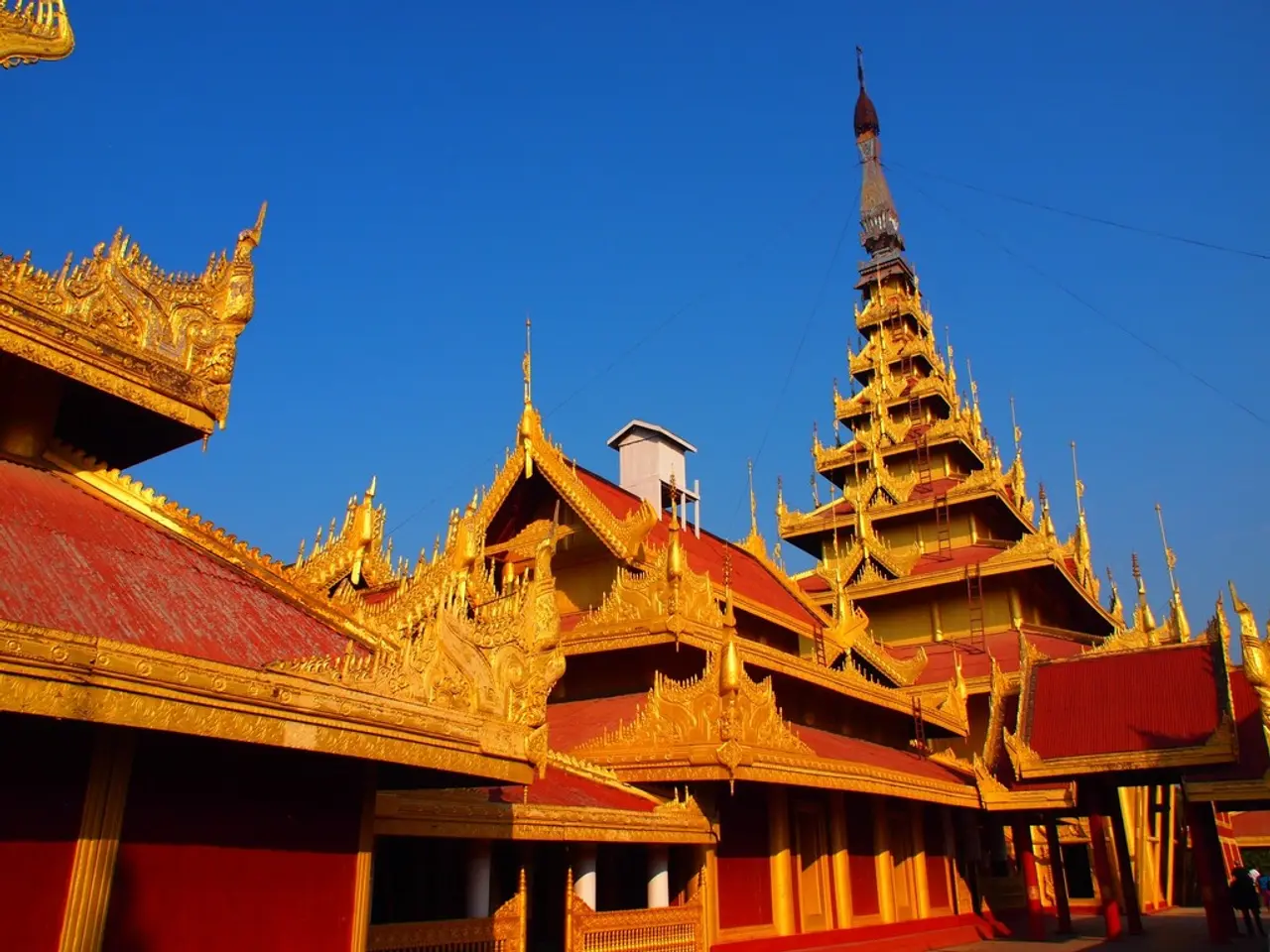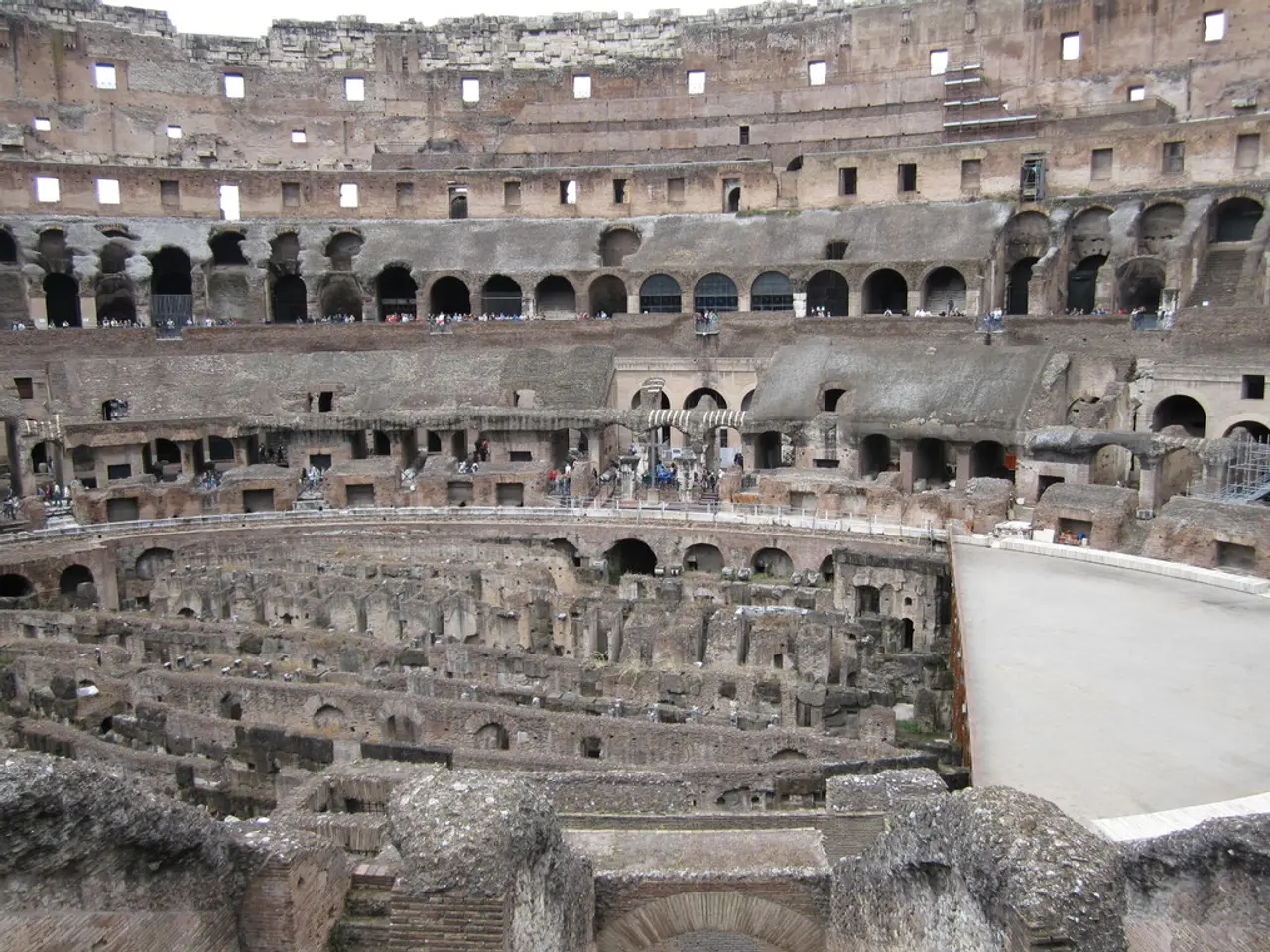Hannibal's Bloody Victory Over 20,000 in Carthage, as detailed by Eve Macdonald
The Rise and Fall of Carthage: A Tale of Ancient Conflict
In the heart of the Mediterranean, two great civilizations once clashed in a series of wars that would shape the ancient world. This is the story of Carthage and Rome, and the Punic Wars that forged the destiny of both empires.
Carthage: A Proud Mediterranean Empire
Carthage, a Phoenician city with roots tracing back to the 8th century BCE, was once a thriving metropolis and the capital of a vast empire that dominated much of the Mediterranean. The city was known for its wealth, built on the back of the Phoenicians' mercantile expertise, and its cruelty, with tales of child sacrifices to the gods Tanit and Baal.
The Causes of the Punic Wars
The causes of the Punic Wars can be traced back to conflicting interests over control of strategic territories and trade dominance in the western Mediterranean. The first spark was the intervention in Messana, a city on Sicily, where Rome and Carthage found themselves on opposing sides. The Mamertines, the city's mercenaries, appealed for aid from both powers, and Rome's military intervention set the stage for conflict.
The First Punic War: A Struggle for Sicily
The First Punic War, fought between 264 and 241 BCE, was marked by significant events such as Rome's quick response to send troops to Messana, the siege and capture of Agrigentum, a key Carthaginian base, and Rome's gradual dominance over Sicily, despite Carthaginian resistance.
The Second Punic War: Hannibal's Alpine Invasion
The Second Punic War, which lasted from 218 to 201 BCE, was characterized by Hannibal Barca's famous crossing of the Alps with war elephants to invade Italy in 218 BCE. This marked a major phase of the war, with extensive campaigns in Sicily, Spain, and Africa involving major battles between Carthage and Rome.
The Third Punic War: The End of Carthage
The Third Punic War, fought from 149 to 146 BCE, was the final conflict that ended with the complete destruction of Carthage by Rome. This act solidified Rome’s dominance in the western Mediterranean, marking the end of Carthaginian power.
In 146 BC, a woman stood on the heights of the Carthage citadel, witnessing the Roman legions' capture of the city. As Rome won battle after battle, Carthage was reduced to ruins, its streets emptied, and its buildings razed to the ground. The city still lies on the edge of modern Tunis, a testament to the power of Rome and the legacy of the Punic Wars.
These wars, spanning over 100 years, shaped the balance of power in the ancient Mediterranean and were instrumental in the rise of Rome as a major empire. The Punic Wars remain a crucial chapter in the history of both Carthage and Rome, shaping their destinies and leaving an indelible mark on the world.
- The politics between Carthage and Rome over trade dominance and strategic territories contributed to the outbreak of the Punic Wars, a sequence of war-and-conflicts that significantly shifted the balance of power in the Mediterranean.
- As the Romans gained political control over Carthage, the general-news of the time was filled with reports of the fall of Carthage, detailing the destruction of the once-thriving empire by the power of Rome, marking the end of an era in the ancient world.








